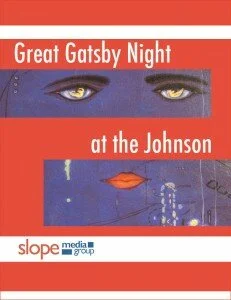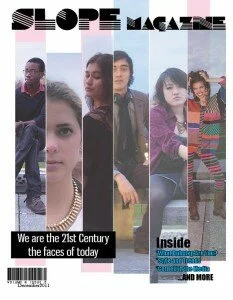Our Town Shows the Significance of Life’s Fleeting Moments
November 21, 2010 —“Here was the evidence that the past is a sustaining force in present life and that the present itself is only a segment of an endless continuum,” Thornton Wilder, famed and Pulitzer Prize winning author of Our Town, said. The Schwartz Center for Performing Arts’ production of Our Town portrayed Wilder’s notion that every moment in life is as significant as the next, and that time itself is infinite.
Our Town, known to many as one of the most classic stories of our time, is a three-act play that depicts the relationships, specifically, between a young boy and girl, in a small town in New Hampshire at the turn of the 20th century. “The play is still relevant to our everyday lives,” James Miller’12 (George Gibbs) said. “We go about things in a hectic way, especially at Cornell, and we really should stop to think,”
The play did not use any tangible props and had very simple scenery, which created a sense of classic simplicity that helped to create a comfortable atmosphere. As Wilder always intended, the play breaks the boundary between its audience and its actors, as it acknowledges that it is in fact a play with actors and a supposed stage manager. The performance begins with the stage manager informing the audience about the play’s title, its author, and the names of a few of its actors.
Miller, who played the part of the stage manager in another performance of Our Town, said that he entered this Cornell performance with a sense of nostalgia. “That was interesting for me because that’s what this place is about. It’s about looking back,” he said.
To differentiate this specific performance from others, the cast and crew launched a community wide “Our Town” campaign, which allowed Ithacans to reflect on their past experiences with the well-known play. The Schwartz Center created an online blog and also a physical memory board as a way for individuals to share their own stories. On the blog you can find the theatrical program of the 1944 production of “Our Town” performed by the Cornell Dramatic Club at Willard Straight Hall.
The play’s three acts depict Daily Life, Love and Marriage, and Death and Eternity. The characters develop throughout the play, as they grow older physically and emotionally. Erin Wagner’11, who played Emily Webb, said of her character, “Emily is interesting, flighty, romantic, and is a dreamer. It was a little harder to relate to her younger self. I wanted her to be a likable character while portraying her immature, insensitive side as well.”
The audience received the play extremely well, understanding the serious emotion that is embedded within the spoken words. One audience member said of the show, “ I was really moved by it, and I think it speaks well to present day. It wasn’t worn out or dusty. There are real parallels to life, and you get sucked into the emotion.”
The play concludes with Emily, after having died during childbirth, looking back at the life she has just lost. “They don’t understand,” she screams, speaking of the many individuals who don’t realize how beautiful and grand life is until the moment passes. Life is full of these fleeting moments that too few people truly appreciate. Hopefully after seeing Our Town, we will no longer take for granted the true worth of every second we are given.

This is the program for the 1944 Cornell production of Our Town.




